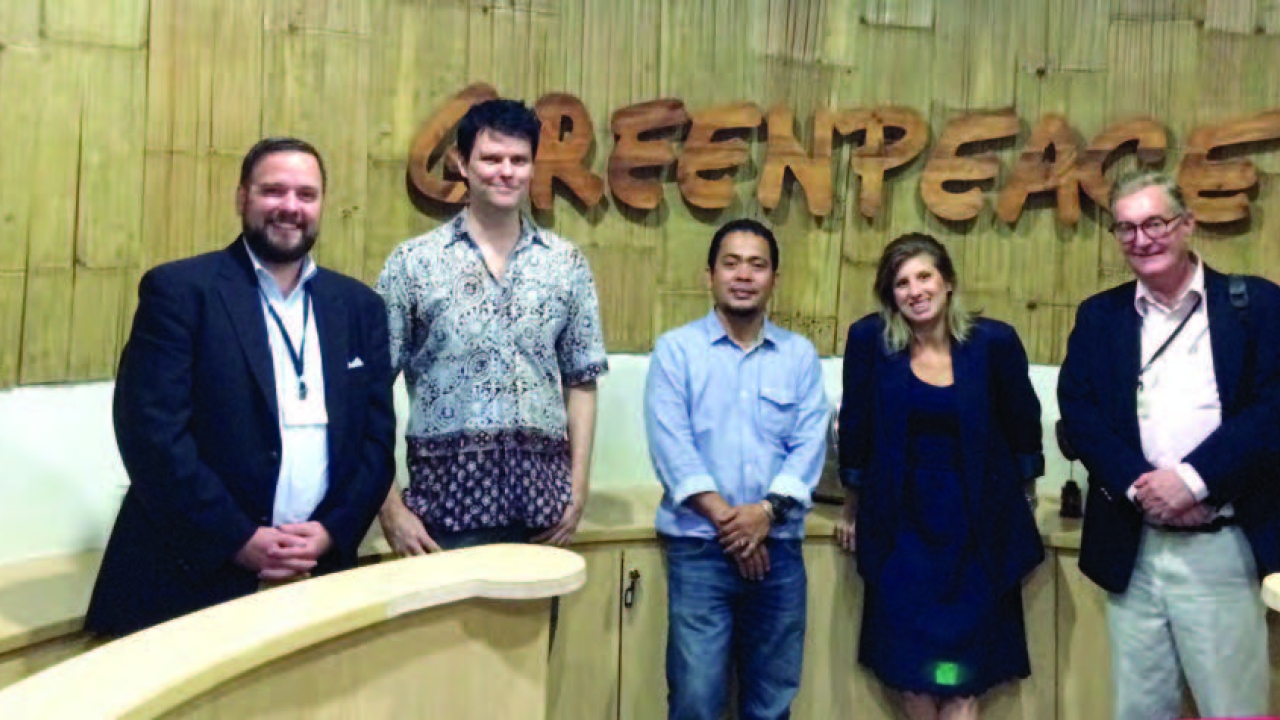APP stands firm: zero deforestation

Asia Pulp & Paper (APP) has operations across Indonesia and in China with an annual combined pulp, paper, packaging product and converting capacity of more than 19 million tons per year. APP’s annual revenue is more than 8 billion USD, making it one of the largest pulp and paper suppliers in the world.
Its products are consumed in more than 120 countries. For years environmentalists and NGOs attacked the company for its lack of consideration when it came to harvesting natural resources and impacting communities to grow its business.
In the last two years, the company has embarked on a brave sustainability journey, sorting through complexity and controversy, and launching new processes and procedures to alleviate its footprint on the environment as much as possible. The value chain and the Indonesian government must recognize APP’s progress and provide support wherever possible to keep the momentum moving in the right direction. It’s important to keep in mind that, when there is demand, there will be supply.
APP operates two massive pulp and paper mills, with a third on the way, on the island of Sumatra in the vast archipelago of more than 17,000 islands that make up Indonesia. As much as 80 percent of the world’s peatlands can be found within these borders.
Peatlands are wetland ecosystems found in bogs that accumulate plant material to form layers of peat soil up to 60 feet thick. They can store as much as 10 times more carbon dioxide (CO2) than other ecosystems. According to UNEP (2002) peatland covers about three percent of the earth’s land surface, yet stores between a fifth and a third of the total carbon contained in the terrestrial biosphere.
When drained or burned, the stored carbon is released rapidly into the atmosphere for up to 150 years. Since 1995, the province of Riau, nestled between North Sumatra and West Sumatra provinces facing Singapore to the East, has experienced rapid deforestation.
According to research conducted by AmeriCorps (NCCC) and United Nations Framework Convention on Climate Change (UNFCCC), the clearing and draining of peatlands is the key reason why Indonesia is the world’s third largest GHG emitter. During this time, much of the deforestation was legal within Indonesian government standards, and while the state is beginning to realize the value of its raw materials, it currently does not have a strong policy to save the land and does little to tackle illegal activity. It grants businesses concession land where it is allowed to extract and harvest products.
The state granted APP and its suppliers 2.6 million hectares of land throughout 38 concessions in Indonesia. The company is charged with the responsibility to conserve the biodiversity and carbon stocks of the land, conserve and protect wildlife and manage conflicts with local peoples and migrating squatters – while also developing profitable plantations.
Conflict between locals and private or state security forces are common in Indonesia, particularly among industrial concessions. These conflicts can be a result of the government’s failure to recognize community land claims, which could mean there are overlapping boundaries with traditional lands and both parties holding stake to the same turf.
To overcome these social challenges and address sustainable forestry in peatlands, APP introduced a Sustainability Roadmap for 2020 in 2012, followed quickly by a Forest Conservation Policy (FCP) that called for unprecedented, immediate zero deforestation for all of its suppliers. APP worked together with The Forest Trust (TFT), a consultancy that helps companies reduce the environmental impact of their operations, to develop the FCP and solicits advice from a range of NGOs, Deltares and Ata Marie for implementing key policy commitments.
Stay up to date
Subscribe to the free Label News newsletter and receive the latest content every week. We'll never share your email address.


